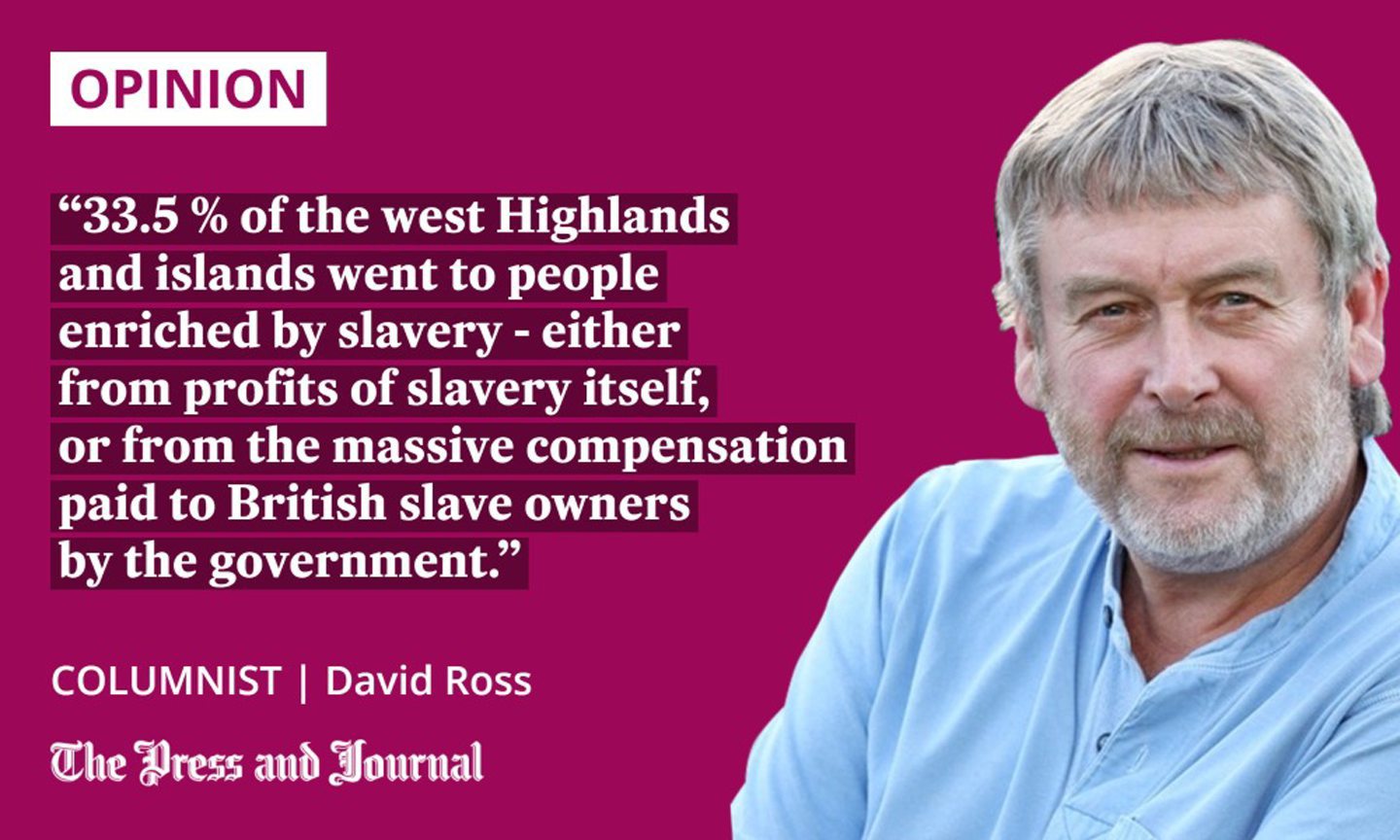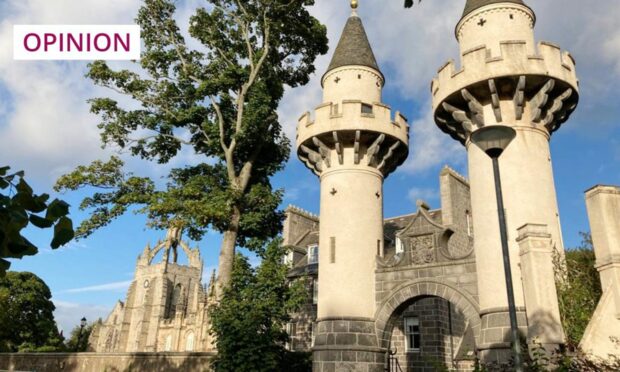In the award-winning Slaves and Highlanders: Silenced Histories of Scotland and the Caribbean, the Cromarty-based historian David Alston writes of how, in the 21st century, Scotland’s significant historical involvement in slavery is still being edited out of national life.
How Scotland is awash with presentations of history which ignore the difficult bits, “especially if the difficult bits might contradict the story told to tourists.”
In his book, based on 20 years of research, Alston accepts that some historical crimes are consigned to history, because there are few, if any, lasting effects of the injustice.
But, he writes: “This is not the case with slavery, not least because slavery involved the kidnapping and transportation of over 12 million Africans… Slavery and the plantation system it supported also uprooted and destroyed indigenous peoples and cultures in the Caribbean, sometimes through acts of ethnic cleansing.
“And slavery – even in its abolition – bred systematic and endemic racism, the effects of which undoubtedly persist.
“But something can be done. In our civic institutions, in our public policy and in our approach to our shared histories.”

Recently, headlines have been made by some prepared to confront their forebears’ enrichment from slavery. The King indicated that he would support research into the monarchy’s link to what Thomas Jefferson (founding father and third US president) described as “a moral depravity”, despite being a slave owner himself.
It could be lengthy royal research. The links between the English throne and slavery go back to the 16th century. But the King’s move followed the publication by The Guardian of a previously unseen document showing the transfer in 1689 of £1,000 of shares in the slave-trading Royal African Company to William the Third.
Earlier, the owners of The Guardian itself issued an apology for the role the newspaper’s founders had in transatlantic slavery. They are committed to a decade-long programme of “restorative justice”, and expect to invest more than £10 million in it.
Today in Grenada, 7 members of the Trevelyan family presented a formal letter of apology to the people of this Caribbean island. “We apologize for the actions of our ancestors in holding your ancestors in slavery.” 104 members of the Trevelyan family signed the apology. pic.twitter.com/9pDqesJXNU
— Laura Trevelyan (@LauraTrevelyan) February 27, 2023
BBC journalist Laura Trevelyan and her family have already confronted the sins of their forefathers. They were absentee owners of 1,000 slaves on Grenada. They have made a first payment of £100,000 to the island.
Trevelyan left the BBC after 30 years to fight for such restorative justice. She explained in an article: “The deafening silence from the descendants of slave owners, from other families like ours, causes unimaginable pain, Sir Hilary Beckles of the Caribbean Community’s Reparations Commission (CARICOM) told us. He convinced us of the power of an apology and encouraged us to lead by example.” There are surely many more who should do likewise.
Not a penny went to former slaves
Readers of this column may recall an academic paper published in 2020. It showed that money from Caribbean and North American slavery financed the purchase of large estates in the west Highlands and islands. Many were subsequently cleared. Some 63 estates were acquired by beneficiaries of “slavery-derived wealth”.
The work was undertaken at Coventry University by Dr Iain MacKinnon, a Skye man. His co-author was Scottish historian Dr Andrew Mackillop of the University of Glasgow, originally from Harris.
It has been calculated that at least 5,000 people were evicted by this new slavery elite
They calculated that 33.5 % of the west Highlands and islands went to people enriched by slavery – either from profits of slavery itself, or from the massive compensation paid to British slave owners by the government when slavery was abolished in most of the British empire.
An 1833 act of parliament provided £20 million for compensation, worth more than £16 billion today. (The money the government borrowed was only finally repaid in 2015.) But not a penny went to former slaves. They were required to provide unpaid labour for five more years, effectively helping to pay for their own freedom.
The paper, built on earlier work by Professor Sir Tom Devine, calculated that at least 5,000 people were evicted by this new slavery elite. But, it concluded: “After the actions of traditional clan families implicated in slavery are taken into account this figure will be very much higher, almost certainly into the tens of thousands.”
It’s time to break the deafening silence
Nobody can draw equivalence between the utter immorality of slavery and the suffering during the clearances. But the fact that the involvement in the former helped finance episodes of the latter surely is important. More so, however, is breaking “the deafening silence” from inheritors of slavery wealth.
Perhaps Scottish Land and Estates could ask members whose family’s estate ownership dates at least to the first half of the 19th century if they have anything they want to say. But there are plenty others. Institutions and individuals, not least amongst the hereditary peers still sitting in the House of Lords.
Historians have done their work. Scottish ministers should now lead their Westminster counterparts by example and engage directly with CARICOM. At least start talking about reparation. Sorry may be the hardest, or indeed most expensive, word. But silence has been costly.
David Ross is a veteran Highland journalist, author and a supporter of Community Land Scotland

Conversation